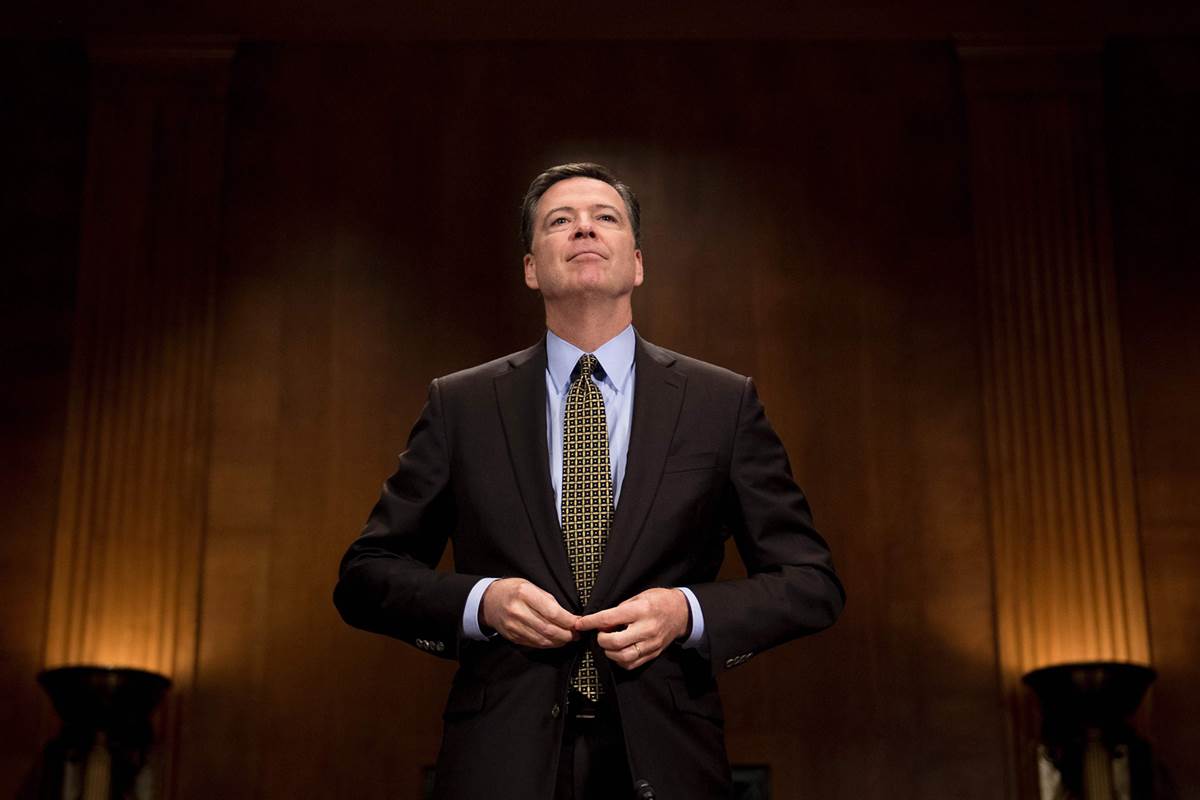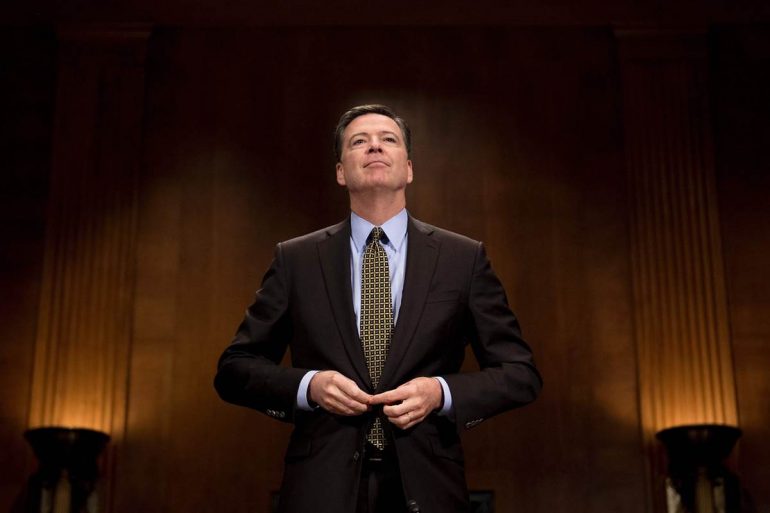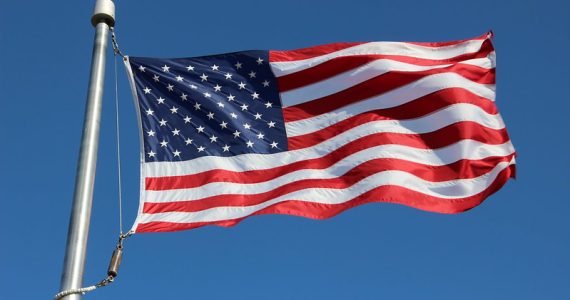
In anticipation of former FBI Director James Comey testifying before congress, the Democrats were chomping at the bit to draw blood from Donald Trump.
Bars in Washington, D.C. opened at 10 AM. CBS broadcasted the hearing live. The event was dubbed #ComeyDay.
But as often is the case with events that are hyped beyond belief, the reality turns out to be a massive letdown.
It’s unclear why Democrats thought Comey would deliver the smoking gun after he’d already testified before congress twice in the past few months.
Nevertheless they did, and like the fans of the losing Super Bowl team, they went home crushed. Probably the most devastating blow was Comey debunking a New York Times article that served as a catalyst for the Trump-Russia hysteria.
From the National Review:
In testimony before the Senate Intelligence Committee, former FBI director James Comey revealed that a February New York Times article, which asserted that Trump associates and campaign members had “repeated contacts with Russian intelligence” was mostly false.
Responding to Virginia senator Mark Warner, the ranking Democrat on the committee, Comey testified that “in the main,” [the report] “was not true.”
‘The challenge — and I’m not picking on reporters — about writing on classified information is the people talking about it often don’t really know what’s going on and those of us who know what’s going on are not talking about it, and we don’t call the press to say, “Hey, you got that thing wrong about this sensitive topic.”’
The Times published the article just one day after Michael Flynn resigned as Trump’s national-security adviser after misleading Vice President Mike Pence about his interactions with Russian ambassador Sergey Kislyak.
Until today, the February report had not been substantially contested or refuted, and its claims had been widely propagated throughout the media.
Although The Atlantic questioned the “murky” quality of its anonymous sources, CNN and MSBNC covered the report as fact. CNN claimed to have independently confirmed the report a day later with the network’s own unnamed “law enforcement and administration” sources.
Dean Baquet, the executive editor of the Times, doubled down on the report’s reliability following Trump’s CPAC speech during which the president berated the paper’s use of anonymous sources. Baquet told CNN’s Brian Stelter, “I always know who the sources are for these stories. That’s why I’m so confident pushing back at the Trump administration when they criticize the stories.”
The report, described as “concrete” by PolitiFact, set off the four-month long firestorm of public calls for the president’s impeachment.
The day following the report, MSNBC’s Chris Hayes asked Representative Maxine Waters (D., Calif.) for her response.
“I’ve come to conclude that Trump has the Kremlin clan surrounding him and have been involved with him for a long time,” Waters told Hayes.
‘How is it that all of them, with this background and with their connections end up in the same administration? I tell you, there’s more to be learned about it. I believe there’s been collusion. They were involved in his campaign, and we’ve got to dig. These investigations have got to show the connection and prove that collusion, because for me, I think that leads to impeachment.’
On the same day, CNN’s Sally Kohn tweeted in response to the report that it would be “straightforward from here: 1. Impeach Trump & Pence 2. Constitutional crisis 3. Call special election 4. Ryan v Clinton 5. President Clinton.”
A day later, the Huffington Post published an article headlined, “Four Ways to Impeach Trump,” citing the Times report as evidence of a violation of the Logan Act (it’s not). The Guardian declared that thanks to the Times, “the story of the week is Trump, Russia and the FBI. The rest is a distraction.”
That single article quickly became one of the founding documents in the seemingly single-minded mission on the part of some in the media to expose evidence of direct collusion between the Russians and Donald Trump. And while Comey did not allege that the sources themselves where lying, the former FBI director did strongly insinuate that reporters have placed too much faith in sources claiming knowledge of classified information.
Not only did Comey destroy that narrative, he confirmed Trump’s assertions that Comey privately told him on multiple occasions he was not under investigation.
Comey also took a hard swipe at Loretta Lynch, Barack Obama’s Attorney General, and the doomed Hillary Clinton campaign.
From the Washington Examiner:
Former FBI Director James Comey said Thursday that former Attorney General Loretta Lynch asked him to downplay the investigation into Hillary Clinton’s emails by not calling it an investigation.
“Probably the only other consideration that I guess I can talk about in an open setting is that at one point, the attorney general had directed me not to call it an investigation, but instead to call it a matter, which confused me and concerned me,” he said when asked about the email investigation.
Comey said that request helped convince him that he had to put some distance between the Obama administration’s Justice Department in order to wrap up that investigation.
“That was one of the bricks in the load that led me to conclude, ‘I have to step away from the department if we’re to close this case credibly,'” he said.
He also said President Bill Clinton’s unplanned tarmac meeting with Lynch “ultimately” confirmed his decision to announce the result of his bureau’s probe into Clinton’s emails.
“That was the thing that capped it for me, that I had to do something separately to protect the credibility of the investigation, which meant both the FBI and the Justice Department,” Comey said.
Comey was later asked more by Sen. James Lankford, D-Okla., about Lynch’s request.
“Just call it a matter,” Comey said he was told by Lynch.
When asked why he didn’t push back against Lynch’s request, Comey said it was because he decided, “This isn’t a hill worth dying on, and so I just said, ‘Okay.’ The press is going to completely ignore it – and that’s what happened.”
Still, he said Lynch’s request “concerned me because that language tracked with how the campaign was talking about how the FBI was doing its work.”
“I don’t know whether it was intentional or not, but it gave the impression that the attorney general was trying to align how we describe our work” with how Clinton’s campaign was talking about the FBI’s investigation, he said. Lynch’s requests gave him “a queasy feeling,” Comey said.
As Democrats are slowly beginning to realize the Russia investigation isn’t bearing fruit–MSNBC host Chris Matthews said the collusion narrative “came apart”–their new battle cry is “obstruction of justice.”
But if there’s no underlying crime, what was obstructed?
This is the question Democrats will be spinning to answer for as long as they can, hoping to drag this non-scandal into the 2018 midterm elections.









